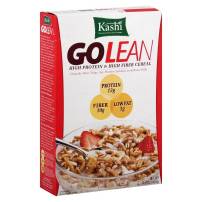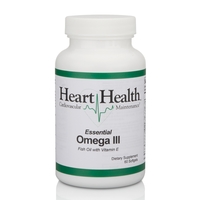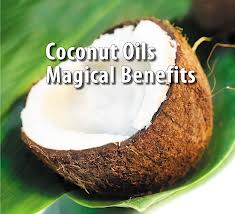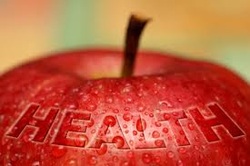Source: JCEM, July 2013. Vitamin D Status Is Associated With Functional Limitations and Functional Decline in Older Individuals
Recommended vitamin D supplementation: nutraMetrix Vitamin D with K2
|
Optimal vitamin D status becomes significantly more important as we age. Researchers have found that vitamin D plays a role in immune health as well as bone strength and integrity, but more recent studies have shown that a deficiency in this vitamin can have a profound effect on mobility and muscle function. This can cause functional limitations, especially as we age. The supplementation of vitamin D - especially in the winter months - is now more important than ever for just about everyone! Read more in the study below.
Source: JCEM, July 2013. Vitamin D Status Is Associated With Functional Limitations and Functional Decline in Older Individuals Recommended vitamin D supplementation: nutraMetrix Vitamin D with K2
0 Comments
Make these changes today and prepare yourself for a transformation!  Increasing the ingestion of docosahexaenoic acid or DHA has recently been shown to significantly decrease the risk of developing anxiety disorders. Past studies have suggested a link between low omega-3 serum levels and an increased likely hood of depression related conditions. Dietary sources of DHA include: - Fish, including shellfish and finfish (Pacific sardines, Atlantic salmon, sockeye salmon, rainbow trout, and canned white tuna in particular) - Eggs - Organ meats - High quality fish oil supplements - Seaweed or algal-oil capsules Source: Dietary intake of fish and PUFA, and clinical depressive and anxiety disorders in women  We have all heard about the importance of carbohydrate for athletes - in fact carbohydrate loading prior to a race or sporting event is a common practice for many individuals and teams. But proper nutrition isn't just about carbohydrate and a plate of pasta the night before your sporting event or race. Your breakfast is equally, if not more important, in order to replenish the liver glycogen (i.e. stored energy) that was depleted during the overnight hours. Liver glycogen is important because it helps to keep your blood-sugar levels stable during your bout of exercise. Your breakfast provides important fuel for your brain, which contributes to staying motivated and focused during longer bouts of exercise. So, you may be thinking, "what and how much should I eat pre-exercise to optimize both my performance and recovery from my workout?" For many people, you may be surprised at how much more you should be eating. Below we'll look at how to choose optimal foods that will give you the energy you need to get through even the hardest of workouts and/or the most strenous of sporting events. THINK COMBINATION Ideally, your pre-workout or pre-event meal should be mainly carbohydrates. This is because carbs are rapidly digested and your body's primary fuel source. For longer or more strenuous workouts, small amounts of protein will help prevent hunger and fatigue as you near the end. You will also want to limit or avoid large quantities of dietary fiber and fat. Both take a longer period of time to digest, and fiber can cause GI problems and bloating to occur. Try the following foods that are unlikely to cause stomach upset:
Do you have a hard time eating first thing in the morning or prior to your workouts or sporting events? Have you felt queasy in the past when you've eaten beforehand? If so, try to stick to liquid carbohydrates to help prevent any types of GI problems. It is, however, still important to provide your body with proper energy and hydration. You will therefore want to try smoothies or 100% fruit juices, which will provide you with quick-digesting carbohydrates that will prevent any stomach upset. Over time, try small amounts of food such as a piece of toast with 1 tbsp all-natural peanut butter or 1/2 banana & 1/2 cup skim milk (or milk alternative). Your body will soon get used to you having a little something in your system. ARE YOU EATING ENOUGH? While your usual bagel and banana might power you through meetings at work, it's not enough to fuel you through a half- or full marathon. Research shows that consuming 1.5 to 1.8 grams of carbohydrate per pound of body weight is ideal for improving performance. For a 150-pound individual, that would around 225-270 grams of carbohydrate (approx. 1,000 calories). Sound like a lot? The key is to time it right - ideally 3-4 hours before the event is suggested. Leaving enough time is critical in order for proper digestion and for your stomach to be empty to prevent stomach upset. This also allows time for your muscles and liver to be fueled and ready to go! Dividing the calories into smaller meals is also an effective strategy. Try consuming 200-400 calories approximately 4 hours before your event, in addition to 16-24 oz of water for hydration. Your next meal would be best 90 minutes to 2 hours prior to your event, which would include easy-to-digest carbohydrate options. Need to wake up early? Be sure to set your alarm in order to allow time to eat. Having something in your tank, so to speak, is critical! If this is a struggle at least strive to eat 2 hours beforehand, eating just 1 gram of carbohydrate per pound of body weight. Be sure to experiment with your chosen foods prior to the event - remembering to stick with foods that are easily digested. Because you'll be eating less carbohydrate in this case, you are at risk of running out of liver glycogen. To combat this scenario, refuel early in the event with energy gels, juice, etc. with approximately 30-60 grams of carbs per hour. Let's not forget a little something right before your race - approximately 30-60 minutes prior to the start of the event. Grab an energy gel (with 8-16 oz of water) or 100% fruit juice mixed with water. This will give you some fuel to push you through the middle part of your event. PRERACE MEAL PLAN SUGGESTIONS Do you have a hard time eating a big breakfast in the morning? If so, divide it up. Below is an example of how a 150-pound individual would fuel for their event: 3 to 4 hours prerace 1 C cooked oatmeal with 2 tablespoons honey 62 g of carbs 6 oz yogurt 17 g 1 large banana 31 g 2 tbsp raisins 16 g 4 oz juice 14 g 12 to 20 oz water 0 g Total Carbs = 140 g 90 minutes to 2 hours prerace 1 slice bread with 1 tbsp jam 28 g 8 oz 100% fruit juice mixed with 16 oz water 28 g Total Carbs = 56 g 30 to 60 minutes prerace 1 energy gel or serving of energy chews 25 g 8 to 12 ounces water 0 g Total Carbs = 25 g How to Recover - Correctly! Following the recommendations below will ensure you'll recover quickly and be ready to train again! Carbs, Carbs, and More Carbs... Carbohydrates post-exercise are essential for replenishing the glycogen stores used up during exercise. When you skip on the carbs, you'll find your ravenous the rest of the day and you'll struggle with early onset of fatigue during your next bout of exercise. To prevent this, strive for half a gram of carbohydrate per pound of weight. For example, a 150-pound individual would need about 75 grams, such as a bagel and banana. Essential Protein Power Protein is critical to prevent the continuation of muscle breakdown. For about an hour after we exercise, muscle breakdown occurs. Providing your body with protein (amino acids) helps to protect your muscle mass and enables your muscle to recover and rebuild. Consume 15 to 20 grams of protein to kick-start muscle repair. Examples of high-quality protein could be a Greek yogurt with fruit or a high-protein energy bar. Hydration is Key During your exercise, you've likely lost a significant amount of fluid through sweat. It is critical to stay hydrated for many reasons including: electrolyte balance, energy levels, mental clarity, etc. Strive for at least 20 oz of fluid, which includes approximately 200 mg of sodium. Sodium is an essential electrolyte and will help to boost fluid absorption. Choose from 100% fruit juice mixed with water, a smoothie or sports drink. Stay Alcohol-Free Post-Exercise Chances are, you're dehydrated - alcohol is only going to make matters worse. If you're really wanting a beer or your favorite mixed drink, it's best to wait a few hours until you have rehydrated properly. Be sure to also eat a solid meal before reaching for a cold one as well! Think You're Done? Not Yet! If you've just completed a race or exercised hard for a long period of time, you will ideally want to focus on your intake for the next 48 hours or so. Shoot for healthy carbohydrates (whole grains, fruits, vegetables, low and non-fat dairy, nuts and seeds) and include sources of high-quality protein at each meal and snack. Doing so will ensure you're refueling properly and will feel at the top of your game for your next workout or race! NUTRITION TIPS TO KEEP IN MIND: If you're the type of person who constantly is getting stomach upset, you may want to analyze your diet more closely. Are you eating a lot of fiber prior to your bouts of exercise? Drinking a lot of caffeine during the day? Do you consume artificial sweeteners such as Splenda, Sweet and Low, Equal, etc.? If so, these may be the culprit. Do your best to eliminate or limit your consumption and see if it makes any difference.  As we all know, muscle quality and strength naturally decreases as we age. Vigorous exercise, which includes resistance training can significantly help fend off this phenomenon. In a recent study, elderly women who participated in a strength training regime were shown to experience additional improvements in strength and muscle function when supplementing with fish oil, than those exerciser who did not. Source: Fish-oil supplementation enhances the effects of strength training in elderly women. Fish oil was shown to decrease symptoms of depression when supplemented by adolescent boys who were experiencing depressive states. This is the latest to demonstrate the anti-depressive qualities of fish oil supplementation.
Source: Fish and n-3 Polyunsaturated Fatty Acid Intake and Depressive Symptoms: Ryukyus Child Health Study  Stress is a normal part of every day life, whether caused by work, family or events completely out of our control. It can have both positive and negative effects. The effects become negative on our mind and body when it accumulates and isn't dealt with properly. Here are 20 Stress Busters to help you better deal with everyday stress. 1. Stop Rushing. Start giving yourself more time to get things done. 2. Get enough sleep. If you are operating on less than sufficient sleep, even the small annoyances can become major crises - not to mention the effects on your hormone levels. 3. Let out a big sigh. This will help you naturally begin to breathe more deeply. Try to free up your abdomen so it can expand as you inhale. Let the breath linger for a moment, then gently draw your belly button in as your exhale. 4. Indulge in some calorie free treats. Enjoy a massage, hot bath, pedicure, or a good book. 5. Use creative visualization. Imagine a relaxing or happy setting to take you away from the stressful situation. 6. Disconnect from the electronic world. Turn off your cell phone, shut down your computer, drive with the radio off and stay clear of the TV for just one night. Give room to simply be. 7. Try single tasking. Often times when we are multi-tasking it takes us much longer to actually finish the task. Instead pick one task to do and you will be able to quickly cross it off your to-do list. 8. Make time to cuddle. This could be with your significant other, kids or pets. 9. Schedule automatic down time. This may be as little as 5 minutes a day where you empty your mind and reconnect to yourself. 10. Cut yourself some slack. Stop demanding perfectionism. No one is perfect! 11. Take a moment of gratitude. Even in the most difficult of times, look for something to be thankful for. Gratitude is often a huge source of happiness. 12. Learn to meditate. By taking just a few minutes to simply be and breathe, you’ll begin to develop a state of calm presence and focused awareness that pays its dividends throughout the day. 13. Prioritize. Figure out the difference between urgent, important and nonessential tasks and focus your energy appropriately. 14. Do the cobra. According to yoga, this pose tones your adrenal glands (to help prevent exhaustion) and stimulates your heart. Try this: lie on your stomach, placing your hands flat on the floor next to your ribcage. Slowly straighten your arms, lift your chest and press your shoulders away from your ears. Hold the pose for a few slow deep breaths. 15. Write things down. This will help dispel any anxiety and free up mental energy to you can participate and enjoy the now. 16. Ask for help. Believe it or not, you don’t have to do everything yourself. Most people want to feel needed, so here’s your chance to make them happy. 17. Go for a walk outside. Getting fresh air is a known tool for reducing stress. 18. Let the sun shine in. Sunlight is not only a good source of Vitamin D, it's also necessary for the production of serotonin, one of the “feel good” hormones. 19. Get creative. Expressing yourself can be an emotional release. Try cooking, drawing, planting, dancing. Do whatever it is you need to bring yourself relief. 20. Eat stress reducing foods a. B vitamins –asparagus, almonds, almond butter, spinach, broccoli, lentils, red peppers, snapper, salmon, halibut, scallops, shrimp. If you feel like you are really stressed, you may consider taking a B complex supplement. b. Magnesium- raw cacao, leafy greens, seaweeds c. Adaptagenic herbs –Maca or Ashwaganda d. Omega 3’s - salmon, flax seed, walnuts, chia and hemp e. Zinc- grass fed beef, leafy greens, miso, pumpkin seeds  Coconut is one of the many foods that has gotten a bad wrap over the years, so hopefully I can help to clarify any confusion you might have about including this fat in your regular dietary intake. So what makes coconut oil so great? Well coconut oil has been used in Ayruveda for thousands of years. Ayruveda is used in India and is known as "the science of life." Unlike other fats, coconut oil is high in medium-chain fatty acids which can help us to lose weight, lower cholesterol, improve diabetic conditions and reduce the risk of heart disease. Coconut oil has a completely different effect on our body than long chain fatty acids found in meat and vegetable oils. Medium chain fatty acids, once consumed, are broken down and used as immediate energy rather than being stored as fat or converted into triglycerides. Coconut oil is therefore a great Superfood for athletes because once glycogen stores have been used up during exercise, coconut oil is then used as the second source of energy. Benefits: 1. Coconut oil speeds up metabolism allowing the body to drop excess weight and toxins. 2. Coconut oil is high in lauric and capryllic acid which is anti-fungal and anti-bacterial, so they are beneficial for the immune system. Try putting it in tea to help them fight colds! The components of coconut oil target harmful bacteria, but leave friendly bacteria alone, which help balance the flora in the digestive system (similar to probiotics). It has also been shown to fight Candida or yeast overgrowth. 3. Coconut oil keeps skin looking young and radiant. As a topical application, it can be useful for restoring luster to your hair, making it an ideal conditioner and moisturizer. 4. Coconut oil also an excellent choice for cooking, because the oil is stable enough to resist heat-induced damage. Oils such as olive oil, canola oil or safflower oil are actually the worst type of fat for cooking. They oxidize at high temperatures, which means they become toxic. 5. Coconut oil potentiates omega 3 fatty acids making them more absorbable and readily available for the body. Usage: Coconut oil has a fantastic flavor. Try as a replacement in any recipe that calls for a form of fat. It's a great substitute for everything from butter and margarine, to olive and vegetable oils. What Kind to Buy: Be sure NOT to buy coconut oil that has been hydrogenated. This destroys the beneficial attributes of coconut oil and makes it high in dangerous trans-fatty acids. The best kind of coconut oil is organic virgin coconut oil, which is closest to its natural state and will provide the most health benefits. You can use it as you would olive oil. The fragrant spice cinnamon is an intriguing compound as it has demonstrated powerful antioxidative, anti-microbial and cancer- protective properties. It is also a good choice for those with type 2 diabetes as its use has been shown to lower fasting blood glucose while improving insulin resistance.
Source: Cinnamon intake lowers fasting blood glucose: meta-analysis.  Start your day with this in mind: "Health must be a priority. Without your health, nothing else matters. When you take care of yourself, you take care of those who love you and who depend on you. It is all too common for you to make everyone else's needs the priority and to leave the leftovers for yourself. This will only work temporarily. When the break comes - and it will - the consequences will wipe out any advantages you may have gained by sacrificing your physical needs. Today, be resolved to make your health a priority; be a good steward of the physical body you were given so you can fulfill the spiritual reasons for your existence." |
AuthorAlissa Robertson, MS, RD, Nutrition Specialist and Owner of Lifestyle Management & Nutrition, received her Bachelor's Degree in Dietetics and Nutrition from the University of Vermont. Upon graduation in 2003 she spent four years providing nutrition education and counseling to local Vermonters. In 2007 she returned to the University of Vermont to complete a two-year Master's program in Dietetics and Nutrition. She is now practicing as a Registered Dietitian at Essex Physical Therapy located in Essex Center, Vermont. Archives
November 2013
Categories
All
|